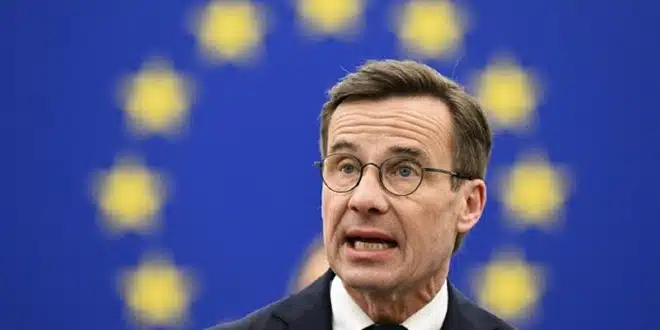In a firm diplomatic move, Sweden has urged the European Union to suspend the trade components of its association agreement with Israel, citing serious humanitarian concerns stemming from Israel’s ongoing military campaign in Gaza.
Swedish Prime Minister Ulf Kristersson made the call public on Thursday, posting on X (formerly Twitter) that Israel is failing to meet its core responsibilities related to humanitarian relief. He emphasized that the situation in Gaza has reached a dire state, describing it as “absolutely appalling.”
Kristersson criticized Israel for not adhering to international obligations and humanitarian agreements, particularly those concerning emergency aid access. “Sweden therefore demands that the EU freeze the trade section of the association agreement as soon as possible,” he stated. He also called on Israeli authorities to permit “unhindered humanitarian aid into Gaza.”
The EU-Israel Association Agreement Under Scrutiny
The EU-Israel Association Agreement, established in 2000, governs political, economic, and trade relations between the two parties. It includes preferential trade terms and structured cooperation. Calls to suspend its trade provisions have grown louder among EU members and rights groups amid escalating civilian suffering in Gaza and increasing scrutiny of Israeli military operations.
Although suspending the trade section would not sever all ties, it would represent a major policy shift and a serious rebuke of Israel’s conduct, especially from one of Europe’s traditionally moderate voices.
Growing International Pressure
Kristersson’s comments reflect mounting frustration in Europe over the humanitarian crisis in Gaza, where widespread destruction, displacement, and restricted access to basic supplies have drawn global condemnation. Several EU countries have voiced concerns about the lack of access for aid organizations and the growing toll on civilians.
Sweden’s demand may further galvanize EU discussions around reevaluating the bloc’s diplomatic stance toward Israel, particularly regarding trade benefits contingent on adherence to human rights obligations.
As the war in Gaza continues, pressure is mounting on both EU institutions and member states to move beyond rhetoric and take concrete steps—starting with reassessing economic ties that critics say enable Israel’s military campaign without sufficient accountability.


